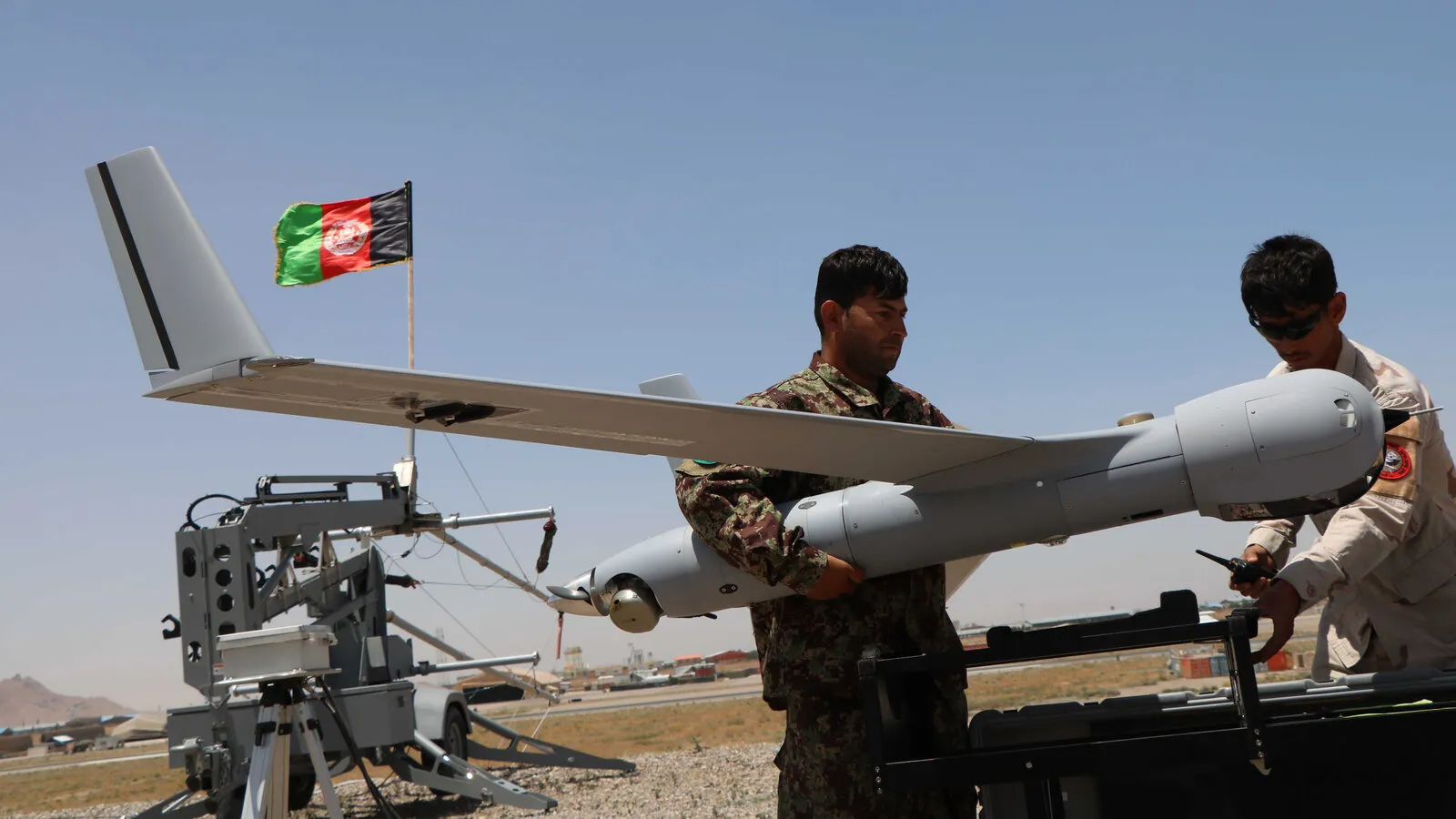Afghanistan Condemns Pakistan After Deadly Drone Strike Kills Civilians

Afghanistan Alleges Pakistan’s Role in Deadly Drone Strike
A devastating drone strike in Paktika province claimed the lives of three promising Afghan cricketers, prompting the Afghanistan Cricket Board (ACB) to accuse Pakistan of orchestrating the attack. On October 21, 2025, ACB spokesperson Sayed Naseem Sadaat presented video evidence implicating Pakistan, leading to Afghanistan’s withdrawal from a Tri-Nation T20I Series in Pakistan. The attack, which targeted cricketers Kabeer, Sibghatullah, and Haroon, has sparked outrage and heightened tensions between the two nations, with the ACB calling for global condemnation of the incident.
The tragedy, occurring in Sharana, Paktika’s capital, has been described as a profound loss for Afghanistan’s sports community. The ACB’s decision to pull out of the tri-series reflects the severity of the incident and its implications for Afghanistan-Pakistan relations, already strained by cross-border tensions.

ACB’s Evidence Points to Pakistan
Sayed Naseem Sadaat, the ACB spokesperson, asserted that the board possesses irrefutable evidence, including video footage, linking Pakistan to the drone strike. “We have clear evidence that the attack was carried out by a Pakistani state,” Sadaat stated, emphasizing that the footage has been shared globally to highlight the incident’s gravity. This accusation comes amid Pakistan’s official denial, which claimed the attack did not target cricketers and was not an airstrike, further escalating diplomatic friction.
The drone strike, which occurred last week, killed three local cricketers—Kabeer, Sibghatullah, and Haroon—while they were returning home after a friendly match in Sharana. The ACB described the loss as a devastating blow to Afghanistan’s burgeoning cricket community, which has been a symbol of hope and unity in the war-torn nation.
Afghanistan Withdraws from Tri-Nation Series
In response to the attack, the ACB made the bold decision to withdraw the Afghan national team from the upcoming Tri-Nation T20I Series scheduled in Pakistan next month. The move underscores the deepening rift between Afghanistan and Pakistan, with the ACB citing the drone strike in Paktika as a direct attack on the spirit of cricket, a sport that has united Afghans amidst ongoing conflict.
The Pakistan Cricket Board (PCB) confirmed that Zimbabwe has agreed to replace Afghanistan in the tri-series, ensuring the tournament proceeds despite the withdrawal. This development highlights the broader geopolitical implications of the incident, as Afghanistan’s absence could impact cricketing relations in the region.
A Call for Global Condemnation
Sadaat urged international cricket boards to denounce the attack, emphasizing that cricket should remain a symbol of peace, untouched by violence. “Cricketers are peace ambassadors, and they should stay away from war,” he said, calling for solidarity from the global cricket community. The ACB’s plea reflects the broader sentiment that sports should not be entangled in geopolitical conflicts, particularly in a region marked by longstanding tensions.
The attack on the cricketers has sparked widespread outrage, with fans and players alike mourning the loss of young talent. The ACB’s condemnation underscores the need for accountability and justice, as the incident threatens to undermine the progress made by Afghan cricket in recent years.
The Victims: Rising Stars of Afghan Cricket
The three cricketers killed in the drone strike—Kabeer, Sibghatullah, and Haroon—were emerging talents in Afghanistan’s cricket scene. Their deaths have been described as a “great loss” for the nation’s sports community, with the ACB highlighting their contributions to local cricket in Paktika. The players were returning from a friendly match when the attack occurred, underscoring the vulnerability of civilians in conflict zones.
Afghan cricket has seen remarkable growth over the past decade, with the national team earning international recognition for its competitive performances. The loss of these young athletes is a setback for the sport, which has provided hope and pride to Afghans amidst ongoing challenges.
Afghanistan-Pakistan Tensions Escalate
The drone strike has intensified longstanding tensions between Afghanistan and Pakistan, two neighbors with a history of cross-border disputes. The ACB’s accusation of Pakistan’s involvement adds a new dimension to the conflict, raising questions about the use of drones in civilian areas. Pakistan’s denial of responsibility has done little to ease concerns, as Afghanistan demands accountability for the attack.
The incident follows a pattern of escalating tensions, including border skirmishes and accusations of supporting insurgent groups. The withdrawal from the tri-series further complicates bilateral relations, as cricket has often served as a platform for diplomacy in the region. The absence of Afghanistan from the tournament could have lasting implications for cricketing ties between the two nations.
Cricket as a Symbol of Peace
Cricket holds a special place in Afghanistan, where it has emerged as a unifying force in a country marked by decades of conflict. The sport has provided young Afghans with opportunities to pursue their dreams and represent their nation on the global stage. The ACB’s call to keep cricket free from war reflects the broader aspiration to protect the sport’s integrity and its role as a beacon of hope.
The attack on the cricketers has sparked a broader conversation about the intersection of sports and conflict. By targeting athletes, the perpetrators have struck at a symbol of peace and resilience, prompting calls for international support to safeguard cricket in Afghanistan. The global cricket community’s response will be critical in shaping the future of the sport in the region.
Global Reactions and the Path Forward
The international cricket community has begun to respond to the ACB’s call for condemnation, with several boards expressing solidarity with Afghanistan. The incident has raised concerns about the safety of athletes in conflict zones and the need for stronger protections. The International Cricket Council (ICC) is expected to address the issue, potentially influencing future tournaments and cricketing relations in the region.
For Afghanistan, the path forward involves balancing the pursuit of justice with the promotion of cricket as a force for good. The ACB is working to support the families of the deceased cricketers and ensure that such incidents do not deter young athletes from pursuing the sport. Strengthening security measures and fostering dialogue with neighboring countries will be crucial to preventing future attacks.
The Legacy of the Fallen Cricketers
The deaths of Kabeer, Sibghatullah, and Haroon have left a void in Afghanistan’s cricket community, but their legacy will endure. The ACB plans to honor the cricketers through initiatives aimed at supporting grassroots cricket in Paktika and other regions. Scholarships, tournaments, and training programs in their names are being considered to inspire the next generation of Afghan cricketers.
As Afghanistan navigates this tragedy, the resilience of its people and the unifying power of cricket will play a pivotal role in healing and rebuilding. The global cricket community’s support, coupled with efforts to ensure justice, will help Afghanistan continue its remarkable cricketing journey despite the challenges posed by conflict.
Comment / Reply From
No comments yet. Be the first to comment!











